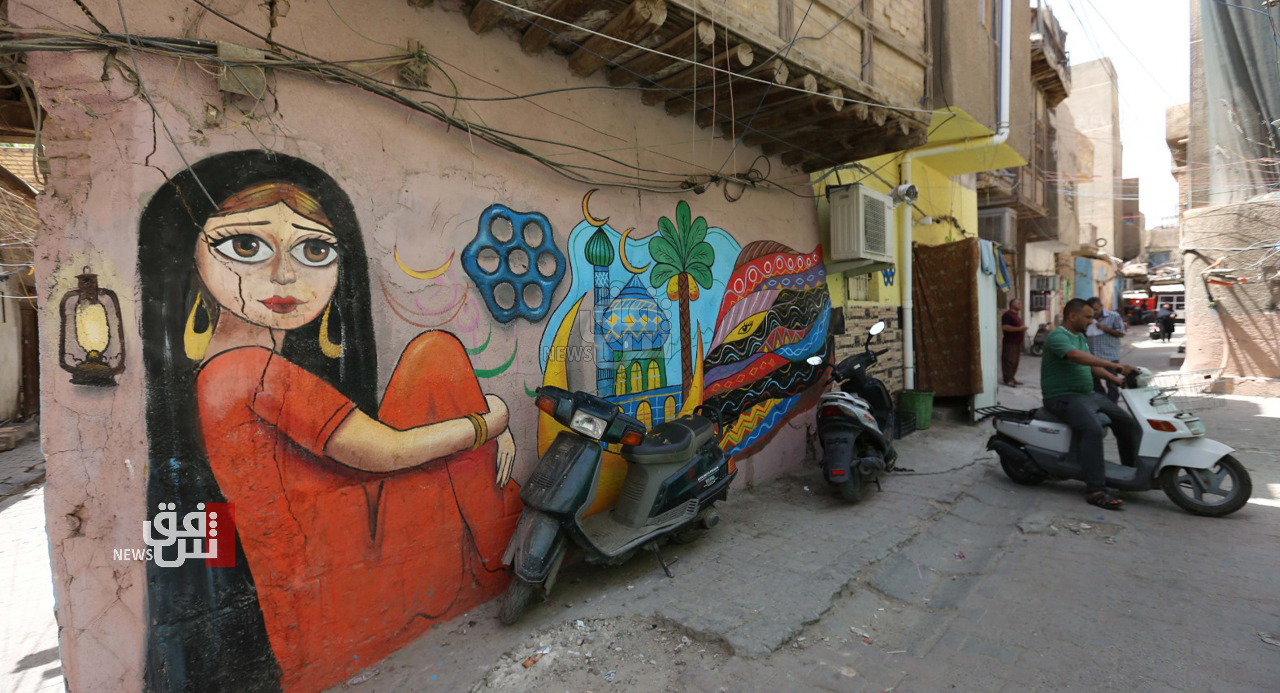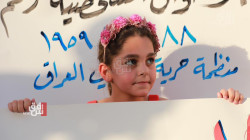Child marriage in Iraq: Hidden harm and stifled dreams

Shafaq News / Underage marriage is increasing in Iraq despite global efforts to address this phenomenon, creating many challenges for the authorities and for a society where divorces are worsening, as well as the risks that early marriage poses to the girls' mental and physical health.
This phenomenon is global and occurs intensively in third-world countries, especially in Africa. However, its recent increase in Iraq has become a concern despite the United Nations' calls to end it by 2030, for it is a violation of human rights.
According to a report by the United Nations' organization UNICEF, 5% of Iraqi children marry at the age of 15 and 24% at 18.
Strikingly, this phenomenon has several invisible negative effects as it actually deprives girls of their childhood and teenage years and burdens them with responsibilities early. Many of those girls are forced to give up their studies because of pregnancy or domestic and marital responsibilities.
An investigation by Shafaq News agency revealed that the phenomenon of underage marriage has also spread to urban areas and cities, which embodies many tragic stories of girls who became mothers when they were still children.
Maryam is a 13-year-old student who wished to fulfill all her dreams and become a dentist, but her dream turned into a loss, "I dreamt of joining my medical family, my father is a pharmacist, and my mother is a doctor practitioner."
"One day, my mother's health deteriorated, and my father told me that she had cancer. I can not forget how my mother's health was worsening day after day, and she asked me one day to marry my cousin so that she would not worry and pass in peace," Maryam said.
"I married my cousin and decided to continue studying, but everything changed as my husband did not allow me to study, and I had to have children and look after the house," she added, "As the days passed, my mother's health began to improve, while I lived in a world of chaos and loss. I could not tell my mother what I was living because I was afraid about her health. Only beautiful childhood memories and sorrowful wishes remained for me."
Iraqi law is supposed to set the age of marriage at 18, but it also allows a judge to marry girls under the age of 15 for various reasons. So, in many cases, many families resort to religious marriage.
In Article VII of the Personal Status Act, there is a requirement of civility and reason for the marriage contract, which may not be available in a girl as a child. Article VII effectively marries 15-year-olds as long as it is approved by the same court and the girl's guardian, but if she is under 15, the marriage is not recorded in court records.
But this does not prevent many families from marrying their daughters under the age of 15, as long as Iraqi law does not establish strict legal conditions on the marriage of children and defines marriage as "a legal contract between a man and a woman".
So far, law enforcement officials have ignored the fact that underage marriage also causes an increase in divorces, often because of the girls' inability to deal with and manage marriage's challenges and great responsibilities.
Iraq's Supreme Judicial Council estimated more than 6,000 divorces registered less than two years ago, but the figure could be much higher now, given the harsh living and economic challenges imposed by the COVID-19 pandemic.
"Due to poverty, my family and I go through days without having a proper meal. So, I decided to marry my 11-year-old daughter to ease the burden," a woman who lives in a slum on the outskirts of Babil governorate told Shafaq News agency.
"I married my daughter to is a financially stable young man, and dreamed that my daughter would live beautiful days and get rid of the poverty and deprivation she suffered in our house, but the opposite happened as her husband took advantage of her poverty and made her a maid to meet his brutal desires," she continued.
"My daughter knows nothing about marriage, I forced her into it, and she became a victim of poverty and deprivation. Now, she is hanging between her husband and her father's house after her husband abandoned her. My daughter can not even take her rights from courts because she has no legal marriage contract," she added.
Asked about the phenomenon of underage marriage, social researcher Suha Ali told Shafaq News agency, "What we see most is the loss of self-confidence, widespread family disputes, or the fear of the unknown, which has forced most girls to marry. On the other hand, some girls may be stubborn and get forced into marriage at the age of 11 or 13."
She added, "Girls this age are mentally, healthily, and socially unqualified to marry, and yet, some girls this age are expecting a child even though they are not eligible for motherhood. Hence, most divorces happen to those married at this age."
"In many cases, underage marriage causes severe bleeding during childbirth, leading to death, or early miscarriage as a result of incomplete physical structure."
"Usually, girls hit puberty and start menstruating at age 11. Yet, I have come across married girls who have not reached that point come to my clinic," gynecologist Dr. Nermin Al-Jaff told Shafaq News agency, adding, "At this age, the reproductive system is incomplete. It is medically accepted that at the age of 16, the uterus is eligible for marriage and marital relationship, but childbirth is not for this age, and in most cases, we resort to caesarean section."
Experts noted that underage marriage is increasing in societies where conflict, poverty, chaos, and instability prevail. UNICEF said that while child marriage is declining worldwide, from one in four girls who married a decade ago to about one in five girls today, the phenomenon remains widespread, "If efforts are not accelerated, more than 120 million girls will be married before their 18th birthday by 2030."
In summary, experts said that the worsening of this phenomenon in Iraq needs a range of overlapping solutions and initiatives to address it, starting with clear and stricter laws, treating the prevailing religious and social provisions and concepts, and work to develop community awareness about this phenomenon, which harms girls psychologically, socially and healthily, and poses additional challenges to the Iraqi economy and society.
